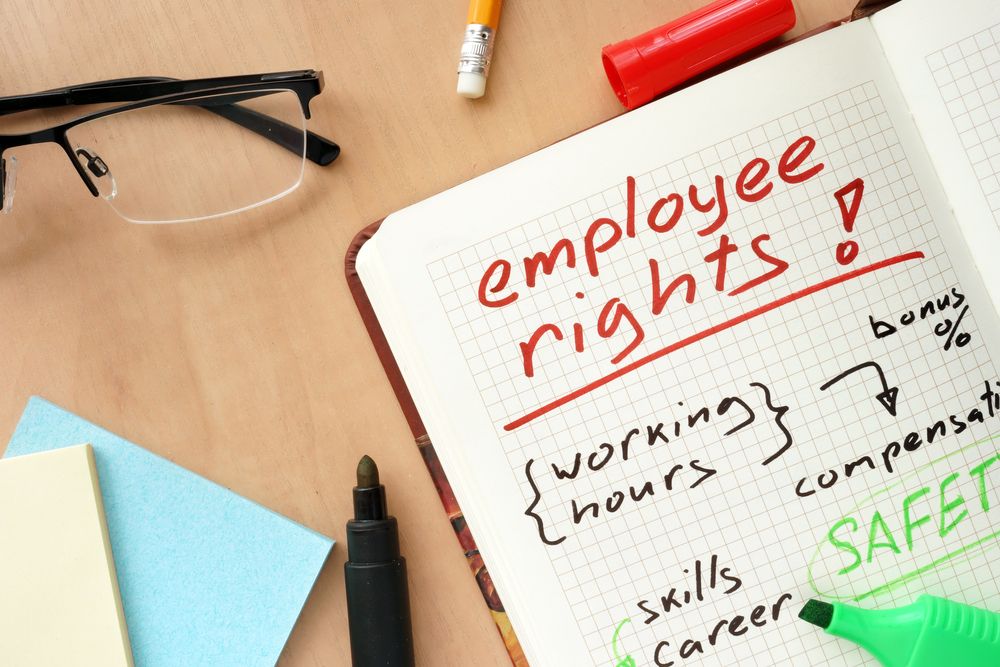Research shows that cancer survivors who continue to work are as productive on the job as other workers, and most who are physically able to work do return to the workforce. But whether you’re preparing to return to an existing job or to start a new one, you may find you have questions when you get there. Perhaps you feel you are being treated unfairly at work. Knowing your rights may help ease your mind and give you the tools to advocate for yourself.
There are laws that protect your right to work and your rights in the workplace. In some cases, you must tell your employer that you have cancer in order to be protected by these laws. Your employer must protect your privacy. They cannot ask about your treatment, health, or prognosis.
Americans with Disability Act (ADA)
The ADA forbids discrimination in any aspect of employment (hiring, firing, pay, job assignments, promotions, layoff, training, fringe benefits, etc.) based on a disability or history of a disability. A disability is a physical or mental impairment that substantially limits a major life activity, such as seeing, hearing, eating, sleeping, walking, breathing, etc. Some of the symptoms and side effects of cancer and cancer treatments are considered disabilities such as fatigue, pain, and trouble concentrating.
The ADA covers employees of state and local governments and private companies with 15 or more employees. If you have cancer, this law covers you if: 1) you choose to tell your supervisor about your diagnosis and 2) you require reasonable workplace accommodations, such as:
- Flexible work hours or a change in work schedule
- Work from home on some days
- Time off for doctor appointments; work breaks to take medication or call doctors.
- Change in duties if you no longer can do your old job, or a new position with fewer physical demands.
- Changes in your physical workspace, such as a standing desk or an ergonomic chair.
You can request a reasonable accommodation at any point while you are working — first day back or after a few weeks or months. Your employer may ask for a letter from your doctor, but they cannot ask to see your medical records. You keep your right to reasonable accommodation even if your condition comes and goes, you don’t have symptoms or side effects, or you’re in remission.
The Federal Rehabilitation Act
The Federal Rehabilitation Act also prohibits employers from discriminating against employees because they have cancer. It applies only to employees of the federal government and private and public employers who receive public funds.
Where to get help
If you feel you have been discriminated against, you can contact a counselor at the U.S. Equal Employment Opportunity Commission. You have 45 days after the day the event took place to file a complaint.
Family Medical Leave Act (FMLA)
The Family Medical Leave Act gives you the right to take time off due to illness, or to care for a dependent who is ill, without losing your job. The law applies to workers at all government agencies and schools, as well as private companies with 50 or more employees within 75 miles. To be eligible, you must have worked for your employer for at least 12 months and have worked at least 1,250 hours during the last 12 months. If eligible, you are guaranteed:
- Up to 12 weeks of unpaid leave with continuation of group health insurance coverage under the same terms/conditions as if you had not taken leave.
- To keep your health insurance benefits while on leave.
- To return to your previous position (or an equivalent position) with the same salary and benefits.
The Affordable Care Act (ACA)
The Affordable Care Act went into effect in 2014. Though it doesn’t deal directly with the workplace, many people get their healthcare plan through work. Under this law, a group health plan cannot:
- Refuse to cover you because you have, or have had, cancer
- Stop covering you once the cost of care reaches a certain amount.
- Charge a higher rate because you have cancer.
- Make you wait for coverage to begin.
Once you sign up for a plan, coverage starts right away.
Resource: American Cancer Society: The Affordable Care Act: How It Helps People With Cancer and Their Families
Returning to Work
When returning to work, there are some things you can do to make things go more smoothly.
- Set up a meeting with your manager to work out transition issues.
- Set up ongoing meetings to check in about how things are going.
- Tell your manager about what types of follow-up appointments you may need.
- Discuss what accommodations you may need, if any.
- Try to be realistic about what you can handle. You may need to ease into a full workload.
- Decide whether to tell your coworkers about your cancer. Who you tell is up to you. You may only want to tell a few people, or you may decide to let everyone know. Keep in mind that not everyone will react the same way.
Resource: Cancer and Careers gives people with cancer the tools and information they need for the workplace. Their At Work page covers a wide range of topics including creating an action plan, tips on sharing your diagnosis (at work), managing side effects, and looking for work.
